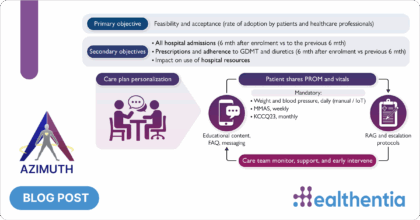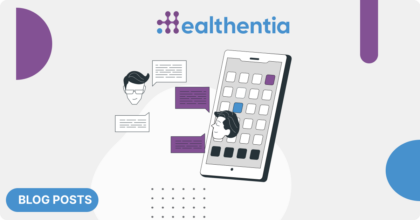
Our research paper titled “HIV Patients’ Tracer for Clinical Assistance and Research during the COVID-19 Epidemic: A Paradigm for Chronic Conditions” has been published in the Special Issue Reprint titled “Advances in AI for Health and Medical Applications“.
This publication shares insights derived from the INTERFACE study; a collaborative effort conducted by Healthentia that provided support to HIV patients during the 1st wave of the Covid-19 pandemic.
The INTERFACE study focused on leveraging e-health and remote monitoring to enhance care for people living with HIV/AIDS (PLWHA), especially during the SARS-CoV-2 pandemic period. Using Healthentia, a mobile application with decision-making algorithms, the study collected data on symptoms, treatment adherence, and quality of life, processed through an innovative e-Clinical platform. Machine learning algorithms aimed to create a digital composite biomarker for HIV-related alerts. With over 1500 stable HIV patients in a university hospital, the study aimed to improve patient care beyond the pandemic, showing promising results in monthly data for learning predictive models.
INTERFACE, an interventional research initiative, collected real-world data (RWD) on patient outcomes. Voluntarily enrolled patients provide informed consent through the app or eConsent process. Operating within Gemelli Generator Real-World Data (G2 RWD), the study integrated Healthentia data into a tailored e-Clinical environment provided by Innovation Sprint. Healthentia combined traditional electronic patient-reported outcomes with lifestyle, behavioral, and health-related data, employing AI and machine learning to predict outcomes and generate prevention alarms, supporting clinical decision-making during trials.
This comprehensive approach proved crucial for managing HIV patients during the COVID-19 pandemic, addressing physical and mental health challenges. The e-health system identified health issues, tailored interventions, and served as a pre-screening tool for chronic patients during the epidemic. Preliminary evidence indicated effective prediction of alerts, with ongoing data collection and integration enhancing accuracy. Future development involves SHAP analysis, assessing the machine learning system’s impact on health indicators, and evaluating its application in advanced chronicity management. The study aimed to provide tailored and effective care for individuals living with HIV, especially in challenging times like the COVID-19 pandemic.
Explore the INTERFACE study for detailed insights into how Healthentia offered assistance to individuals with HIV during the Covid-19 pandemic.









